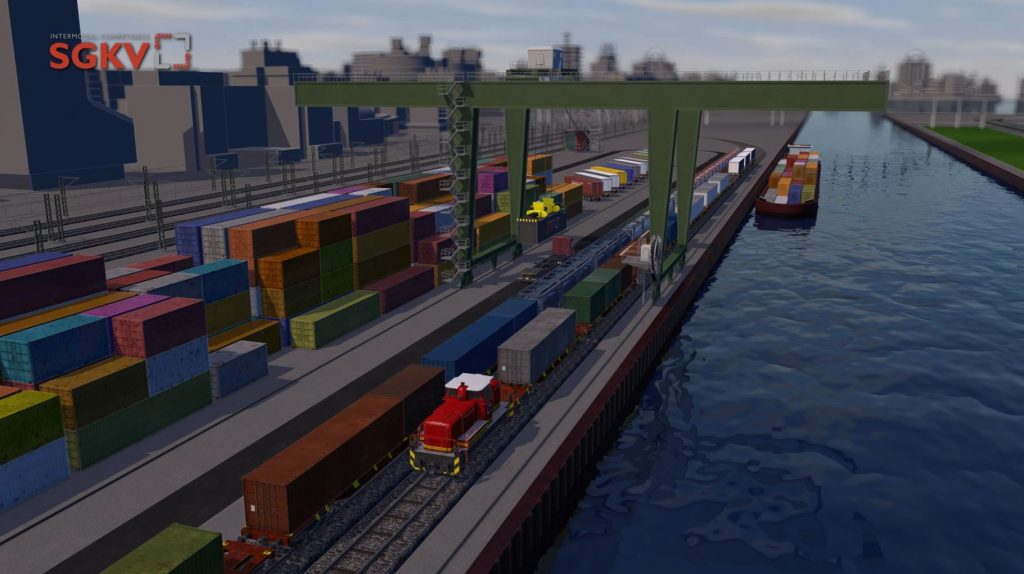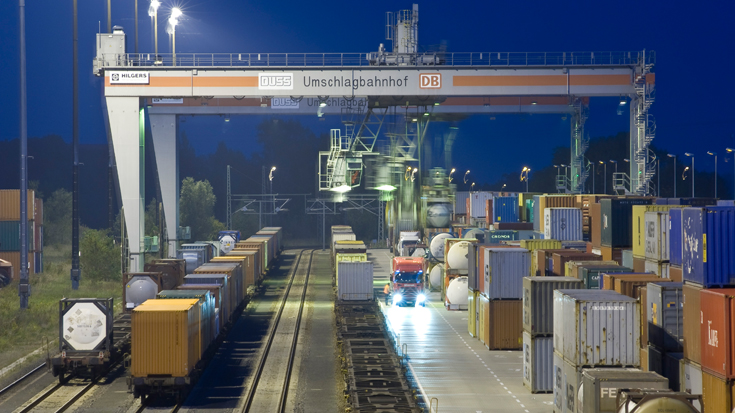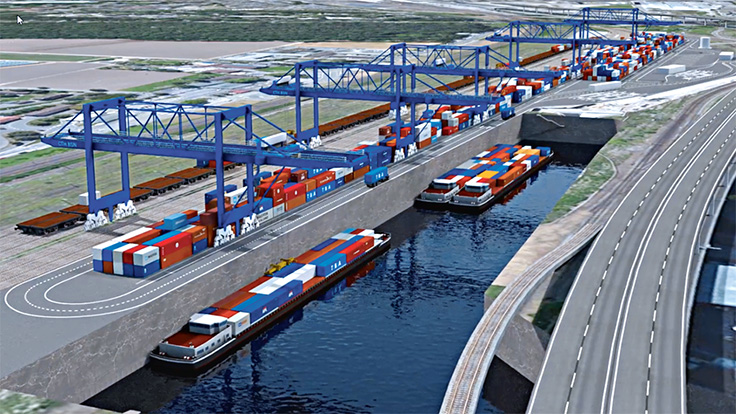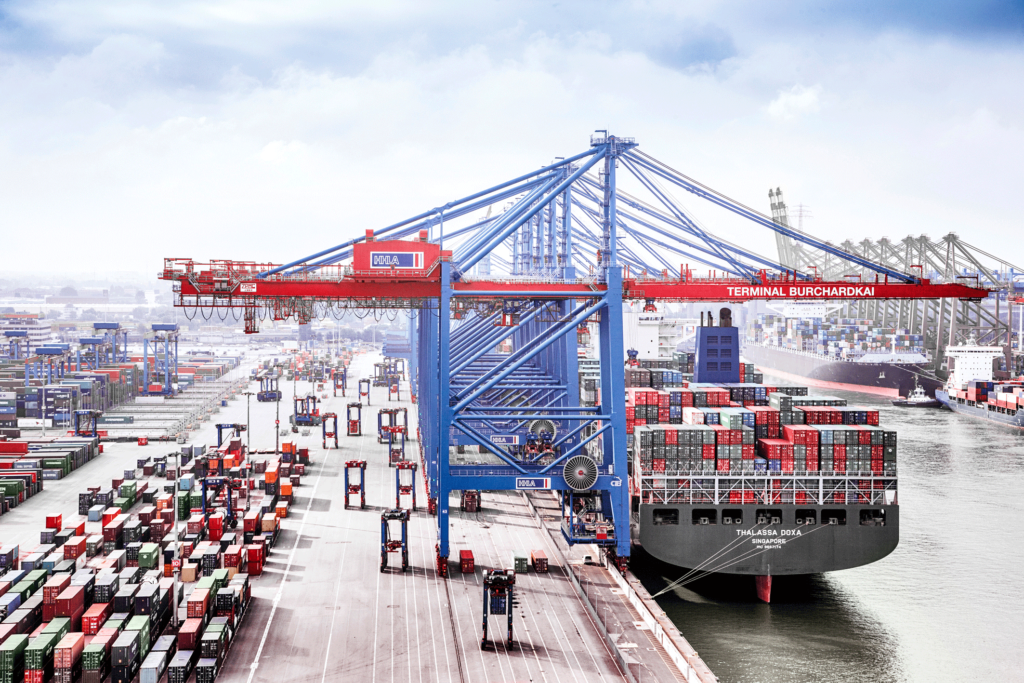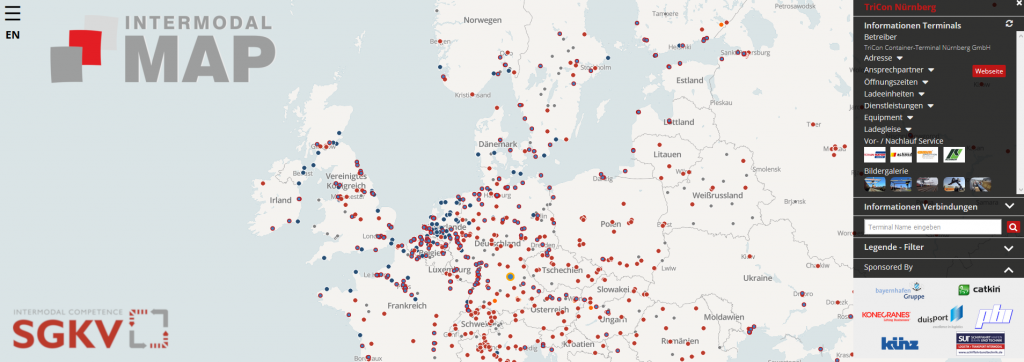Terminals im KV (en)
FUNCTION OF TERMINALS
Terminals are transshipment facilities in which loading units are moved between different modes of transport (road, rail, and waterway). They represent the interfaces in transport networks. In addition to transshipment, terminals also have a buffer function, i.e. they can store and retain goods for a certain period of time, which promotes flexibility in transport networks.
Loading units can also be bundled in terminals and redistributed. Terminals are differentiated according to their connection function, i.e. to which mode of transport the terminal is connected.
A general distinction is made between seaport terminals and inland terminals. While seaport terminals are transshipment facilities for loading and unloading large seagoing vessels and have a direct seaward connection, CT or inland terminals are located more inland and responsible for transshipment between the modes of transport rail, road and inland waterway.
CT terminals can also be located downstream on the territory of a seaport in order to move the loading units from and to the seaports. The technical and infrastructural equipment of inland terminals or seaport terminals is geared to the corresponding respective function.
CT TERMINAL
CT terminals (also inland terminals) are transshipment facilities located in the hinterland, i.e. they are not located directly by the sea. Inland terminals, however, are connected to seaports via the various route networks and can also be located directly on the premises of a seaport. In CT terminals, loading units are transshipped between the various modes of transport, which is why these terminals are important hubs in CT between the various transport sections.
CT terminals can generally be distinguished by the modes of transport they are connected to. Bimodal terminals can transfer loading units between two modes of transport, while trimodal terminals switch between three transport modes. The technical equipment of the transshipment systems in terminals is designed accordingly

